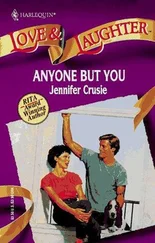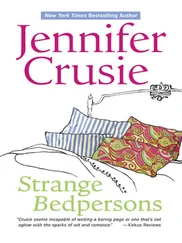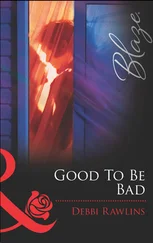“Good luck, then,” she’d written back immediately, even though it had to be three in the morning there. “And never mind the teacher. She’s his transition object. They never last. Call or write when you’re home… I’ll be in the States again in the spring.”
I cancelled my haircut, postponed a few telephone interviews, arranged for my neighbors to pick up my papers and my mail. I didn’t call Bruce. If I decided not to stay pregnant, there’d be no reason for him to know. At this stage in our non-relationship, I couldn’t very well imagine him sitting beside me in a clinic tenderly holding my hand. If I did stay pregnant… well, I’d burn that bridge when I came to it, I thought.
I hitched my bicycle rack and mountain bike to the back of my little blue Honda, put Nifkin in his traveling case, and tossed my bag in the trunk. Ready or not, I was going home.
PART THREE. I Go Swimming
The summer between my junior and senior years at Princeton, I had an interns hip at the Village Vanguard, the oldest and most attitudinous of the alternative newsweeklies in the country.
It was a wretched three months. For one thing, it was the hottest summer in years. Manhattan was boiling. Every morning I’d start sweating the instant I exited the shower, keep sweating through the subway ride downtown, and basically continue sweating the whole day.
I worked for a horrible woman named Kiki. Six feet tall and skeletally skinny, with henna’d hair, cat-eye thrift shop eyeglasses, and a permanent scowl, Kiki’s summer uniform was a miniskirt paired with thigh-high suede boots, or, alternately, the noisiest clogs in the world, topped with a tight T-shirt advertising Sammy’s Rumanian Restaurant, or the Boy Scouts Gymboree, or something else so square that it was hip.
Initially, Kiki confounded me. The hipster garb made sense, and the bad attitude was par for the Vanguard course, but I couldn’t figure out when she was getting any work done. She showed up late, left early, and took two-hour lunches in between, and seemed to spend most of her time in the office on the phone with a cadre of interchangeable-sounding friends. The mosaic nameplate on the white picket fence she’d ironically erected around her cubicle read “associate editor.” And while she associated plenty, I’d never seen her edit.
She was, however, the master of delegating unpleasant chores. “I’m thinking about women and murder,” she’d announce on a Tuesday afternoon, idly sipping her iced coffee while I stood before her, sweating. “Why don’t you see what we’ve done?”
This was 1991. The back issues of the Vanguard weren’t stored online, or even on microfilm, but in huge, dusty, falling-apart, oversized binders that each weighed at least twenty pounds. These binders were housed along the hallway that linked the offices of columnists to the feeding pen of metal chairs and cigarette-scarred desks that served as workspace for the Vanguard’s lesser luminaries. I spent my days hauling the binders off the shelves, lugging them over first to my desk, then to the copying machine, all the while trying to avoid the gin breath and wandering hands of the nation’s preeminent gun rights activist, whose office was right next to the shelves, and whose favorite summer hobby seemed to be accidentally on purpose brushing against the sides of my breasts when my arms were loaded down with binders.
It was miserable. After two weeks I gave up on the subway and started taking the bus. Even though it made the ride twice as long and just as hot, it kept me out of the sweltering, fetid pit that the 116th Street subway stop had become. One afternoon in early August, I was sitting on the M140, minding my own business and sweating as usual, when, just as the bus lurched past Billy’s Topless, I heard a very small, perfectly calm voice that sounded as if it was coming from the precise base of my skull.
“I know where you’re going,” said the voice. The hair on my arms and the back of my neck stood straight up. I got goosebumps, and was suddenly freezing cold, and I was completely convinced that what I was hearing was… not human. A voice from the spirit world, I might have said that summer, laughing it off with my friends. But really, I thought it was the voice of God.
Of course it wasn’t God, just Ellyn Weiss, the small, strange, androgynous-looking Village Vanguard contributing writer who’d sat down behind me and decided to say, “I know where you’re going” instead of “hello.” But in my mind, I thought that if I ever got to hear the voice of God, it would sound exactly like that: small and still and sure.
Once you’ve heard the voice of God, it changes things. That day, when the preeminent gun rights activist waggled his fingertips against the side of my right breast as he made his lurching way back to his office, I accidentally on purpose dropped 1987 on his foot. “So sorry,” I said, sweet as pie, when he turned the color of a dirty sheet and stumbled away, never to lay a finger on me again. And when Kiki told me, “I’ve been thinking about women and men, and how they’re different,” and asked whether I could start pulling pages, I told her a bald-faced lie. “My advisor says I won’t get credit for this if all you’ve got me doing is photocopying,” I told her. “If you can’t use me, I’m sure the copy editors can.” That very afternoon I slipped Kiki’s skinny, angered clutches and spent the rest of the summer writing headlines, and going out for cheap drinks with my new copy-editing colleagues.
Now, seven years later, I sat cross-legged on a picnic table, my face turned up to the pale November sunshine and my bike parked beside me, waiting to hear that voice again. Waiting for God to take notice as I sat in the center of Pennwood State Park in suburban Pennsylvania five miles from the house I grew up in, for God to look down upon me and intone either, Keep the baby, or Call Planned Parenthood.
I stretched out my legs, lifted my arms over my head, breathing in through my nose, out through my mouth, the way Samantha’s yoga instructor boyfriend said would rid my bloodstream of impurities and increase clear thoughts. If it had happened the way I figured – if I’d gotten pregnant the last time Bruce and I were together – then I was eight weeks along. How big was it, I wondered? The size of a finger-tip, a pencil eraser, a tadpole?
I’d decided that I’d give God another ten minutes, when I heard something.
“Cannie?”
Ugh. That most definitely was not the voice of the divine. I felt the table tilt as Tanya hoisted herself on top of it, but I kept my eyes closed, hoping that maybe, for once, if I ignored her she’d go away.
“Is something wrong?”
Silly me. I was forever forgetting that Tanya was a participant in a clutch of self-help groups: one for families of alcoholics, another for sexual-abuse survivors, a third called Codependent No More!, with an exclamation point as part of its name. Leaving well enough alone wasn’t even a possibility. Tanya was all about intervention.
“It might help if you talk about it,” she rumbled, lighting a cigarette.
“Mm,” I said. Even with my eyes shut I could feel her watching me.
“You got fired,” she suddenly announced.
My eyes flew open in spite of myself. “What?”
Tanya looked inordinately pleased with herself. “I figured it out, didn’t I? Hah! Your mother owes me ten bucks.”
I lay on my back, waving her smoke away from me, feeling a growing annoyance. “No, I did not get fired.”
“Was it Bruce? Did something else happen?”
“Tanya, I really don’t feel like discussing it right now.”
“Bruce, huh?” Tanya said mournfully. “Shit.”
I sat up again. “Why does that bother you?”
Читать дальше












